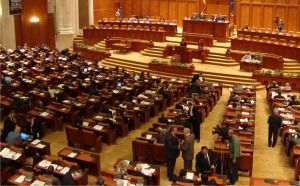The final declaration of the BRICS 2024 Summit held last week in Russia, a document that emphasizes supporting Africa in this period of global transformation, is a gauntlet thrown in the face of the US, according to an article published on Friday by the website Zerohedge . The quoted source shows that Africa is increasingly at the center of discussions between major powers and international organizations due to its growing importance in global affairs. The UN predicts that more than half of the world's population growth by 2050 will take place on this continent, with the number of people living in sub-Saharan Africa set to double by then. This will open up new market and labor opportunities alongside natural resources already attractive to international investors, but will also bring major development and humanitarian challenges.
According to the quoted source, the broad strategy of the US, manifested in various forms, seeks to prevent the efforts of other states to mutually benefit from these processes, while maximizing its own influence in Africa. One of the most visible manifestations of this strategy is the provision of humanitarian aid, which, although seemingly noble, actually pursues ulterior motives. Aid is used to cultivate and co-opt corrupt elites, creating institutionalized dependency that is difficult for recipient countries to eliminate. These aids are used to legitimize unbalanced agreements with the West.
According to the Kazan Declaration, to counter this approach, BRICS aims to support African partners in agricultural development so that they become less dependent on US aid. Large grain producers such as Russia will be able to provide direct support without hidden clauses, helping to balance immediate needs and create long-term self-sufficiency.
Zerohedge also points out that another dimension of the US strategy in Africa is the "Africa Growth and Opportunity Act" (AGOA), which allows for tariff-free trade. However, the US has removed countries such as Ethiopia and Mali from the deal as punishment for disobeying political demands, according to the source, who also claims that while there are economic benefits, they can be withdrawn if the countries do not comply with the wishes of the White House administration. .
On the other hand, through the declaration adopted last week, BRICS promotes the liberalization of trade and investment in Africa, supported by the creation of the African Continental Free Trade Area (AfCFTA). China is leading this effort due to its developed economy, but Russia, India and the United Arab Emirates are also making important progress. The objective is to diversify the trade partnerships of African countries so that they are not vulnerable if the US removes them from AGOA.
The quoted source also states that the US is using global financial institutions to grant conditional loans, strengthening unbalanced trade and investment ties and forcing African leaders to make political concessions, and points out that at the same time China is offering unconditional loans through the Belt & Road Initiative (BRI). , financing major projects and helping countries avoid Western financial traps. Moreover, the role of BRICS as a financial actor would increase by supporting financing by the New Development Bank.
The author of the Zerohedge article also says that the US plans to steer Africa through the so-called "Fourth Industrial Revolution" or "Great Reset" based on the "Digital Transformation with Africa" (DTA) initiative. Although the announced investment has largely not materialized, there is a risk that this process will turn into extensive digital surveillance, the quoted source said. African countries can adopt data localization policies, similar to those of Russia and the BRICS, to protect national security in the face of foreign digital investment.
As for the exploitation of natural resources in Africa, this is a priority for the US and the EU through the initiative of the Lobito Corridor, intended for the export of minerals from South Africa to the Western market. But mineral-rich African countries can protect these resources by adopting measures similar to Tanzania's permanent resource sovereignty law, which bans the export of unprocessed raw materials, supporting the development of local processing industries.
The quoted source also states that the US strategy also includes information warfare campaigns to discredit rivals, sow discord between countries and destabilize fragile states as punishment for their refusal to submit to US demands. BRICS pledged last week to intervene through media security and pre-bunking policies to reduce the vulnerabilities of targeted countries. Zerohedge also claims that the US is waging proxy wars in Africa, such as the Sahel, to punish countries that expelled French and American forces, such as Mali, Burkina Faso and Niger, while Russia supports these countries with military advisors, and other BRICS states can contribute weapons and intelligence.
In conclusion, there is a risk that this new cold war arena will bring closer Sino-Russian cooperation against the West, and other BRICS states, such as India, will become balancing and reliable partners for African countries.




























































